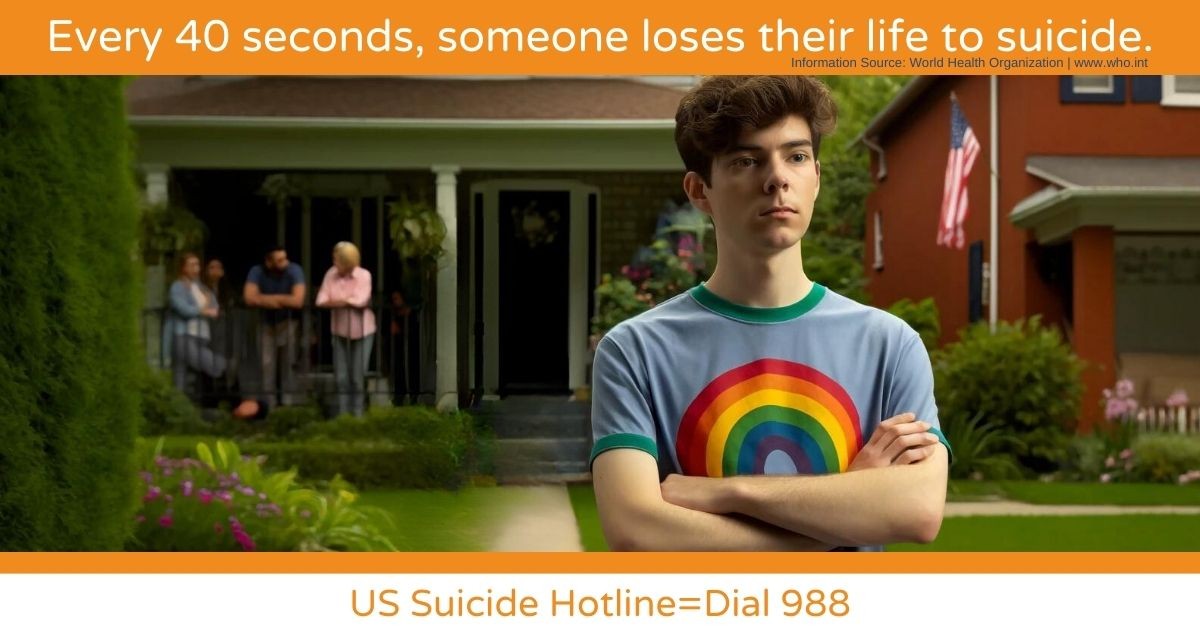
In Matthew 22:36-40, Jesus taught us to “Love God with all your heart and with all your soul and with all your mind” and to “love your neighbor as yourself.”
Jesus also said those two commands were like each other. That means that when we love our neighbor, we love God, and if we love God, we will love our neighbors. Jesus also said these two commands sum up the entire teaching of the scriptures. So, we can agree they are deeply important.
Yet, when it comes to our LGTBQ+ neighbors, some Christians put up a wall and choose not to love this population in the same way we love ourselves. Some Christians inadvertently become like the Pharisees, using the guise of hypervigilant spirituality to keep themselves from entering relationships of friendship and love. Still, there are others who desire to love this community well but don’t know quite how to - maybe out of fear, out of lack of proximity, or because they aren’t sure what to think or believe.
Just like loving anyone, especially any group of historically marginalized people, our job is to love others without making any human being a political pawn. Our job is to love with dignity. Our job is to love all of God’s image-bearers without objectifying, demeaning, dismissing, or condemning. Our job is to love people towards Jesus and the Church instead of turning them away. So how do we do that while honoring God and our own convictions throughout all?
Here are 7 Ls about loving your LGBTQ+ neighbors:
Photo Credit: Image created using DALL.E 2024 AI technology and subsequently edited and reviewed by our editorial team.
1. Listen
If you aren’t in proximity, community, family, or friendship with members of the LGBTQ+ population, begin praying that God would open up the opportunity for you to develop authentic relationships of listening. Spend time hearing your LGBTQA+ neighbors’ stories of struggle, of longing, and their pain points. It’s not their duty to educate you about their plight, but it is your task to be a real friend. That means leading with a posture of listening, getting to know, paying attention, and caring.
2. Learn
We make many false assumptions when we don’t educate ourselves. Do the work to find out the difference between gender identity, sexuality, attraction, the use of pronouns, the latest (dependable) research, etc. You don’t have to accept or agree with everything you learn, but a learning posture is a humble posture. And Jesus loved with humility.
Related Resource: How Should Christians Think about the "Bro Code"?
In this episode of the Thinking Christian Podcast, James sits down with journalist, author, and podcaster Katelyn Beaty to discuss her series of essays on her substack "The Beaty Beat" about the "Evangelical Bro Code." They consider the various components of the bro code, possible solutions to the bro code, and the ways the bro code negatively impacts both women and men. Listen in, and be sure to subscribe on Apple or Spotify so you never miss an episode!

3. Lament
Suicide is the leading cause of death among young people ages 10-14 and the third leading cause among young people ages 15-24. LGBTQ+ young people are at significantly increased risk; LGBTQ+ young people are more than four times as likely to attempt suicide than their peers. The statistics around depression and anxiety in LGBTQ+ teens are increasing as well. This should cause deep empathy, should break your heart, and should lead you to cry out to God in lament. Furthermore, if these statistics do not break your heart, begin asking why. Ask God to help you see others the way Jesus does, with a heart of compassion, love, and justice.
Photo Credit: Image created using DALL.E 2024 AI technology and subsequently edited and reviewed by our editorial team.
4. Lean into Prayer
The Bible tells us to,
“Pray in the Spirit on all occasions with all kinds of prayers and requests.” - Ephesians 6:18
And to “love your enemies and pray for those who persecute you” (Matthew 5:44). Do not view this population as enemies (that’s not loving) but do spend Pride Month praying for your LGBTQ+ neighbors. Set a calendar on your alarm and pray God’s blessing, salvation, love, transformation, and redemption over them each morning.
5. Look in the Mirror
Look at the log in your own eye before you point out the speck in someone else’s. Jesus taught us that in Matthew 7 as a way to say, stop judging others, especially when you aren’t even willing to look at the sin in your own heart. As you pray for the LGBTQ+ community in June, pray Psalm 139:24 over yourself each day,
“See if there is any offensive way in me and lead me in the way of salvation.”
And remember, we all put our identities in the wrong things, including our sexuality. No matter who we are or how we identify, let’s become people who place our identities in Jesus above all.

6. Limit Hypothetical Thoughts
Limit hypothetical scenarios in your mind. Here’s what I mean. Way too many people waste time on hypothetical arguments, debates, and what-if scenarios, especially when it comes to people who are “different” than them. What happens if this is asked of me? What happens if I don’t know what to say? What happens if I mess up or do something wrong? What happens if they offend me? This line of thinking is an anxiety-driven mechanism to keep you from engaging with others in love and in truth. These would-have, could-have, and should-have thoughts are actually called counterfactuals, and because they are only hypothetical, there are an endless number of possible counterfactuals, which only leads to more and more anxiety. That overthinking type of worry will freeze you in fear. Jesus tells us:
“Be anxious for nothing, but in all things by prayer and petition let your request be made known to God, and the peace of God which passes all understanding will guard your hearts and minds through Christ Jesus.” - Philippians 4:8
The point is, turn to God—not to your fears or false assumptions or pretend hypothetical counterfactuals— to guide you as you love your LGBTQ+ neighbors and family members. God is not surprised by anything, and God holds the present and the future in his hands. You have nothing to fear when you trust God.
Photo Credit: Image created using DALL.E 2024 AI technology and subsequently edited and reviewed by our editorial team.
7. Love
Some gay Christians are choosing lives of celibacy because they believe that best honors their faith in and fidelity to Jesus. That’s a massive sacrifice of love, of intimacy, of family. But the church, the people of God, are also the family of God. So, be intentional. Invite your LGTBQ+ neighbors into your small groups, to church services, and to family dinners. Be sure to create safe spaces and make a godly family community together. Furthermore, many people within and without the LGBTQ+ community still don’t know the love, transforming power, salvation, forgiveness of sins, and the freedom that’s ours in Jesus. As you are praying (see “Lean”), pray for opportunities to invite all your neighbors to place their identity and hope in Jesus.
This month, Pride Month, is a humbling opportunity to listen, learn, lament, lean into prayer, look in the mirror, limit your anxious thoughts, and love your neighbors – to grow in the way of Jesus.

Originally published Friday, 07 June 2024.
